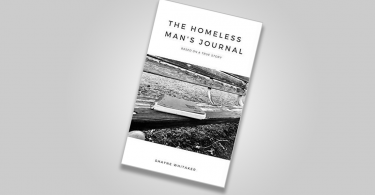After the French Culture Minister recently revealed she hasn’t read a novel in two years (oh dear), it got me thinking about books I sincerely wish I hadn’t read. Rarely does this occur, I can appreciate the hard work a writer has to put into creating a novel, and even if I haven’t enjoyed the book, there will be positives I can see that make me understand why it was published and unleashed on the world.
Bleak House, however, is not a good book. It does not fall into the category of “publishable”. It is, ironically, bleak. Despite us now being in the bleak month of November, I still wouldn’t recommend it. Actually, that isn’t true. If you need a doorstop, then I would recommend it whole heartedly for that purpose.
Flaws upon flaws upon flaws
Classics are often slated to be difficult to read, but, as a result, incredibly rewarding. Having read a few classics, including A Christmas Carol and Wuthering Heights, I can fully understand this point of view. Novels like these are not always easy to read, but carry a sense of achievement after you finish, and can really speak you just as much as a more modern book, I have certainly felt that with Wuthering Heights.
Yet, Dickens’ work unfortunately did not live up this idea and absent was any kind of rewarding feeling. Several flaws, for me, make it an unappealing read. The beginning in itself is not attention grabbing. Over a page of description of the fog in London isn’t as thrilling a beginning as it could be. There is fog. It is an extended metaphor. We understand, please move on. There is, however, a brilliant irony in the BBC adaptation, the first episode begin and there isn’t any fog. 
The fog seems to be a precursor for the length of the rest of the novel. Everything is simply much too long. This is the general style, I’ve found, of Victorian novels, episodes that ought to take a page take seven almost all of the time, and prose simply isn’t clean or efficient. I love a good description now and then, but it’s all a little too much. To add, complications are in abundance due to the seven hundred characters and fifteen thousand sub plots (only a slight exaggeration), many of which seem relatively boring and irrelevant overall.
Saving grace
There are perhaps a few plus points, one of which is the overall tone of disdain towards the law and a damning indictment of the legal system. The novel can be seen as a vicious criticism of the institution of the law and the Courts of Chancery in particular, which I can completely get on board with. A quick skim of just the Preface makes it clear that Dickens was not impressed with the injustice delivered by the law and that the case of Jarndyce and Jarndyce is, according to him (and it’s not hard to believe), based on legal cases at the time.
Although there are simply too many words, there are certain words that have been expertly placed. Particular ways of describing lawyers, for example, also highlight Dickens’ dissatisfaction with the legal world and lawyers and a powerful. When Mr George refers to lawyers as a “breed”, for example, i’s difficult not to see lawyers as a collective and we also associate “breed” with an animalistic nature.
The use of description for names, is also effective. I would appreciate a little more subtlety, but naming Miss Flite as such, at least means I’m inclined to remember she is the character with the birds. A definite saving grace when there are too many characters and I need to know the book inside out for my end of year exam.
Overall though, pick up another book to read. Almost any other book. Except maybe a textbook, this still beats one of those, but only just.
Image: Wikimedia Commons/Halbot Knight Browne








